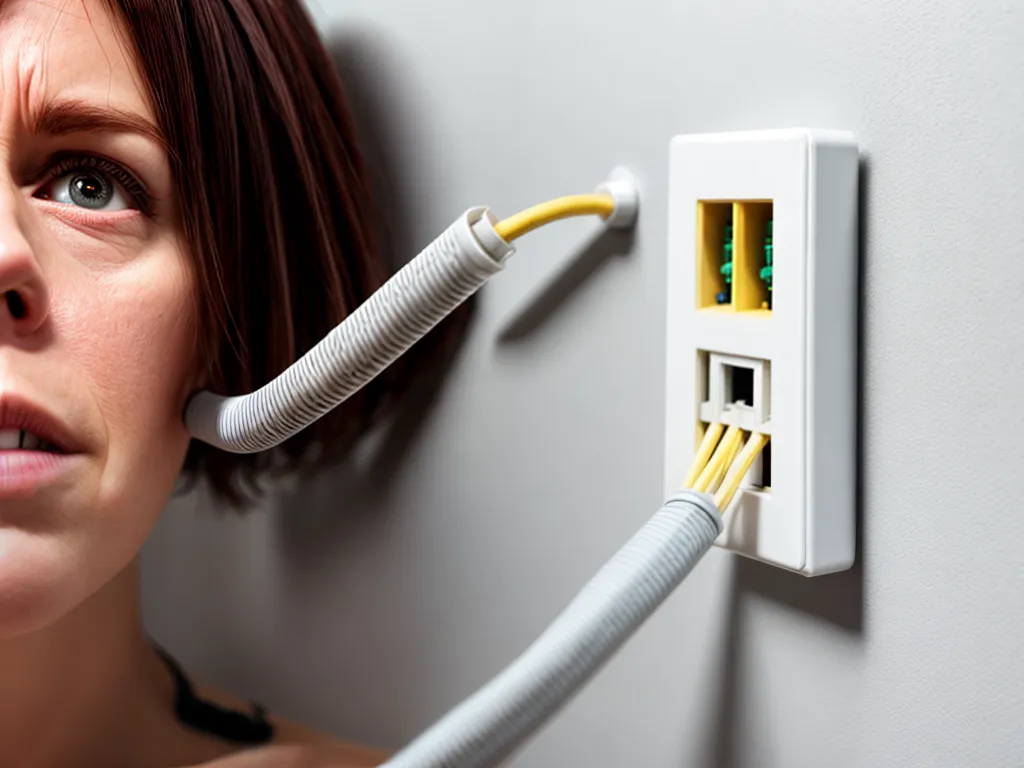
Using unprotected household wires refers to utilizing electrical wires in your home that do not have proper insulation or protective coatings. This dangerous practice can lead to serious hazards like electrocution, fires, and equipment damage. As a homeowner, I must educate myself on these risks to keep my family safe.
Shock and Electrocution Risks
Exposed copper wiring carries electricity throughout my home. If these wires become frayed or damaged, the risk of electrocution increases. Some hidden dangers include:
-
Faulty connections - Outlets or switches with loose, damaged, or improperly connected wires can lead to arcs, sparks, and shocks.
-
Rodent damage - Mice or rats chewing through wires creates exposed conductors. Even small bites in the insulation can be deadly.
-
Cracked wire coatings - Fraying, drying out, or general wear and tear of the plastic/rubber coating leaves the inner copper exposed.
-
Improper modifications - Amateur DIY electrical work often leaves dangerous gaps in insulation and connections.
One small mistake with unprotected wires can instantly send currents through my body. At 120 volts, as little as 15 milliamps across the chest can cause paralysis or ventricular fibrillation. Higher voltages rapidly lead to severe burns and death.
I must inspect wires regularly and call an electrician immediately if any are damaged or exposed. Protective wire conduits must always be used during modifications. Circuit breakers and GFCIs help limit shock risks.
Fire Hazards from Faulty Wiring
Electricity flowing through unprotected wires generates heat. Excessive current causes wires to overheat, which can melt the insulation and surrounding materials. This leads to electrical fires.
Warning signs I must watch for include:
- Hot outlets or switches
- Burning odor from cords or outlets
- Discolored wires
- Flickering lights
- Frequent tripped breakers
These indicate overloaded circuits and loose connections that create resistance and heat. Unprotected wiring allows this heat to ignite nearby flammable materials. Electrical fires rapidly spread through walls and air ducts.
To prevent fires, I should have my home's electrical system inspected at least every 10 years. This identifies aged, damaged wiring in need of replacement. I also need tamper-resistant receptacles, arc-fault circuit interrupters (AFCIs), and fire-rated wire coverings.
Equipment and Appliance Damage
Electricity spikes and surges are transmitted through wiring. Unprotected wires carry these directly to sensitive electronics and appliances. This can destroy them or lead to premature failure.
Surges come from:
- Lightning strikes
- Faulty grid power
- Motors and compressors turning on/off
Without proper surge protection, voltage spikes can instantly burn out microchips in computers, TVs, smart home devices, and more. Motors and compressors are also at risk of burnout.
I need high-quality surge suppressors or a whole home protector to safeguard expensive equipment. Quality wire insulation also helps absorb some surges.
How to Protect My Home's Wiring
Here are key steps I must take to make my household wiring safer:
- Inspect wires for damage annually, especially in older homes
- Update outdated wiring that lacks grounding or has degraded insulation
- Use wire conduits for all DIY electrical projects
- Have GFCIs installed in kitchen, bathrooms, laundry, and other wet areas
- Install AFCIs to protect from arcing faults
- Consider hardwired surge protectors to defend appliances
Taking a proactive approach allows me to find and fix problems before a catastrophic electrical failure occurs. With vigilance and proper household wiring, I can help prevent avoidable electrically-induced accidents.